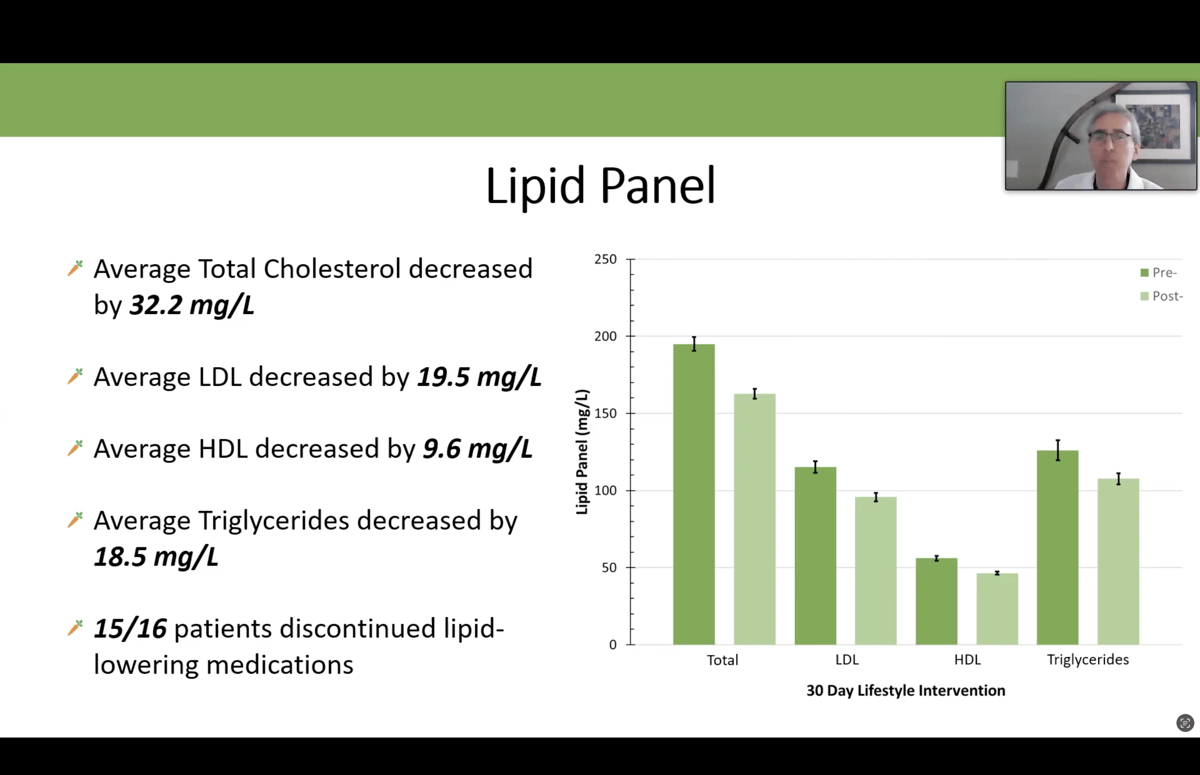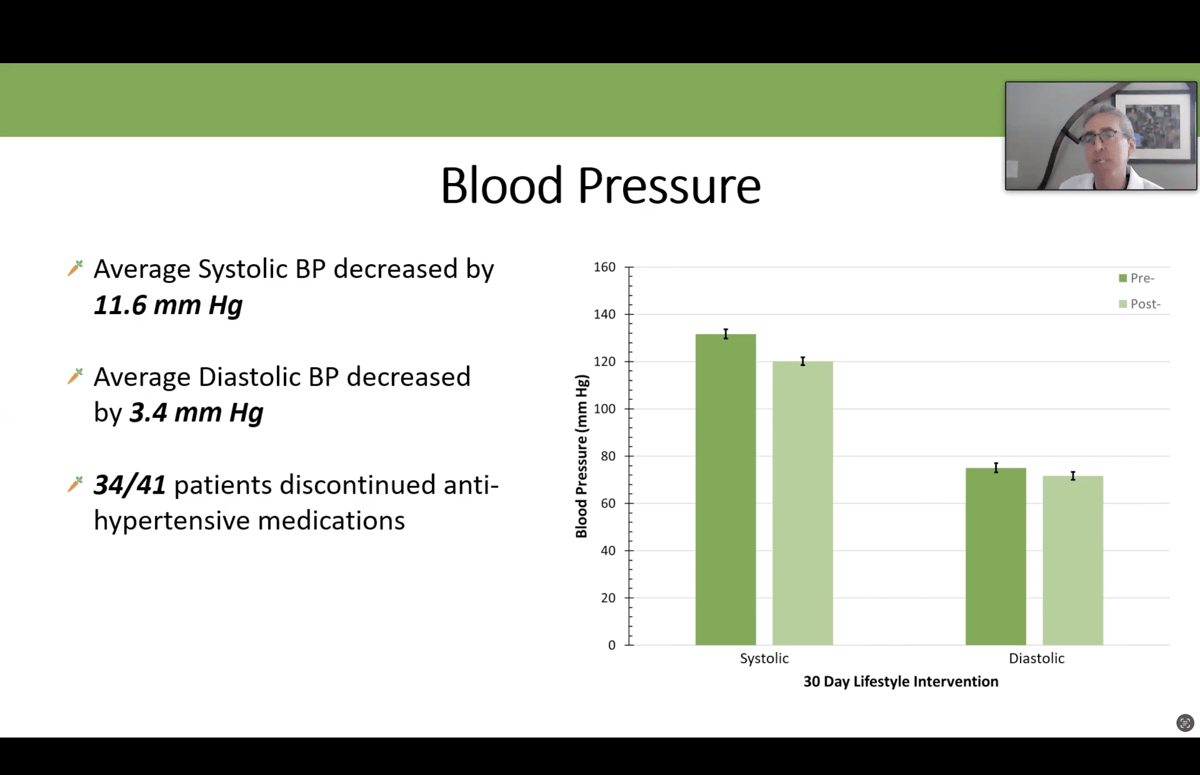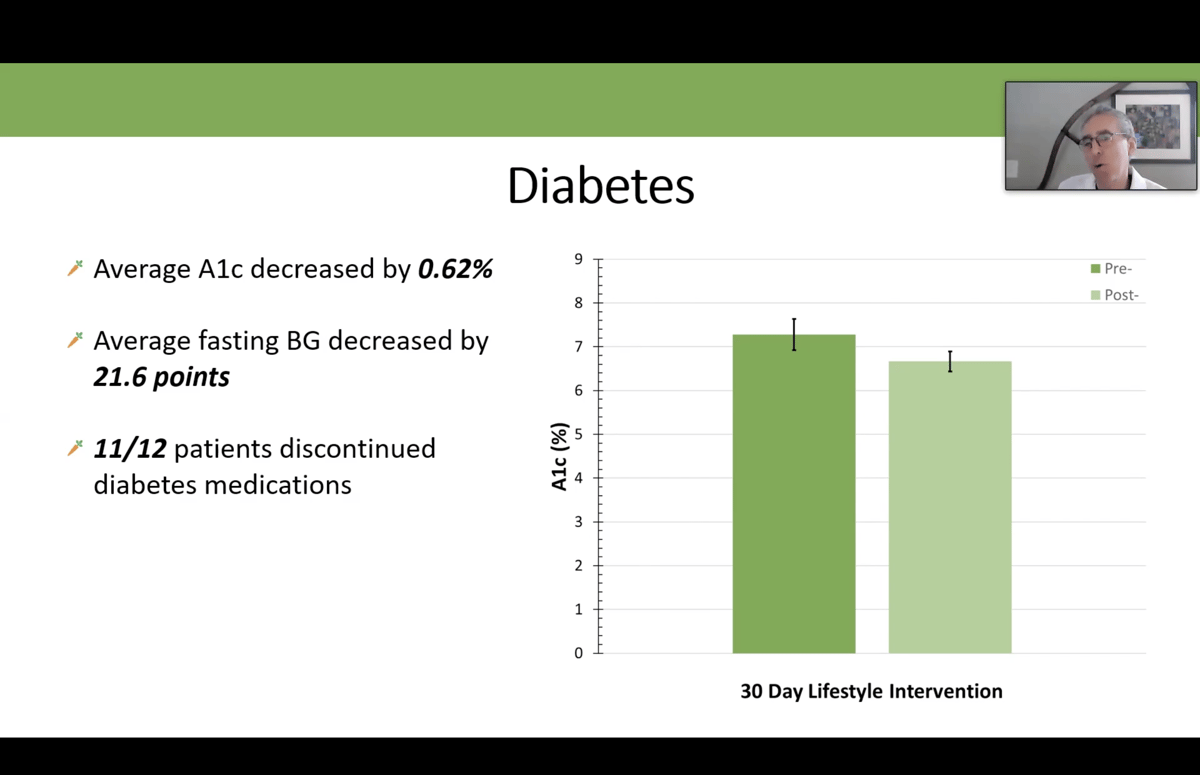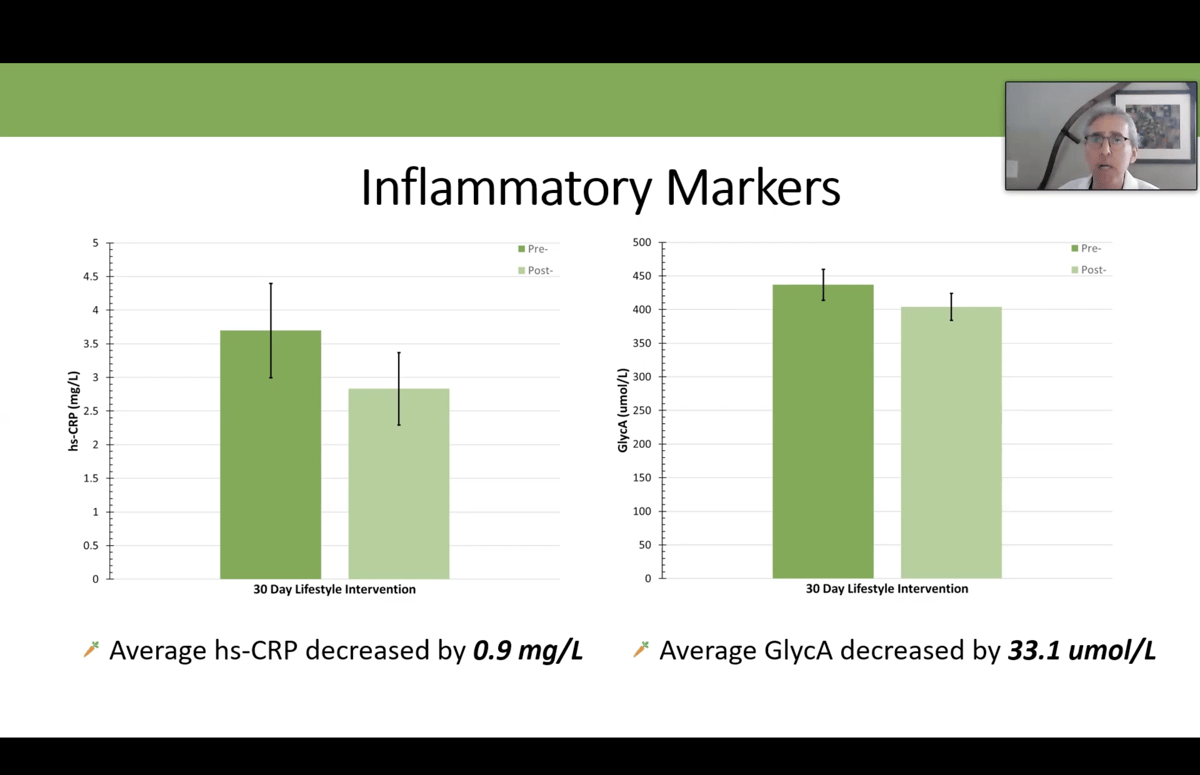Dr. Ron Weiss is not your average primary care physician. He serves as the Executive Director of Ethos Primary Care and is an Assistant Professor of Clinical Medicine at Rutgers University. Dr. Weiss is also a botanist and a farmer who believes in using food as medicine, allowing him to bring a unique perspective to the field of healthcare.
His approach combines his traditional Western medical training with a deep understanding of the interconnectivity of agriculture, human health, and planetary health. Dr. Weiss has garnered attention from both the medical community and the public and has been featured in The New York Times and CNN.
The Tend Team had the opportunity to attend Dr. Weiss’ presentation at the 2023 Soil Regeneration Summit, an annual conference hosted by Dr. Elaine Ingham’s Soil Food Web School. During Dr. Weiss’ talk, we learned about his evidence-based approach to using nutrient-dense produce as a treatment for chronic illness.
.png?width=1350&height=1080&name=Dr.%20Weiss%20Blog%20(2).png)
Photo: Ethos Farm Project
Dr. Weiss’ interest in using food as medicine began when his father was diagnosed with end-stage metastatic pancreatic cancer. Conventional medicine offered no treatment options for the cancer, but Dr. Weiss refused to accept this as an answer. He began researching areas of medicine where he didn’t have expertise and discovered the power of medicinal foods. His father began a strict whole foods plant-based diet, and after nine months, his tumors shrank by 50%. He experienced an improved quality of life for the rest of his days.
Inspired by this experience, Dr. Weiss dove deeper into the benefits of using food as medicine as he continued his work, primarily working in emergency medicine and eventually opening his own practice. This practice was recognized as the most effective primary care practice in the state of New Jersey, with ‘effective’ being defined as the most successful at keeping people out of hospitals and ERs. Eventually, there were too many patients with too little support from insurance, and Dr. Weiss realized there weren’t enough resources to treat everyone using modern medicine.
A Farm-Based Healthcare System
Fed up with the modern medical system, Dr. Weiss decided to sell his practice. He used the money to purchase a farm and started Ethos Farm Project, a revolutionary farm working to model a new type of food system. The farm sits on 342 acres of USDA prime soils, some of the most productive soils in all of New Jersey. When Dr. Weiss first arrived at the site, the farmland was being used to grow GMO soybeans and corn in an industrialized manner.
Although the previous farming operation practiced no-till methods, the soil organic matter was only at 1.5% after years of monocropping and synthetic chemical applications. He transitioned the land to a sustainable agriculture model and began growing food using organic and regenerative methods.
The results of his efforts have been astounding. Not only has he improved the health of the soil, but the food grown on the farm has also become more nutritious. Organic farming can result in up to a 50% increase in nutritional value, which means that the food grown at Ethos Farm is not only better for the environment, but it's also better for our bodies.

“We established a health care delivery system within the farm, surrounded by the fields, where people can come to partake of the produce of the land and reverse their chronic illnesses,” he said. “I practice medicine right in the middle of this farm. We grow the medicines that restore the health of our people and our surroundings. It’s not just the food - it’s the world the food comes from and how it is grown.”
Staff at The Ethos Farm Project includes regenerative farmers, health coaches, and medical providers working together to provide patients with nutrient-dense food, support them in embracing behavioral changes, and learn about healthy eating. This approach to healing from chronic illness and optimizing wellness is evidence-based and aims to empower people to take charge of their health and improve their overall well-being.
Dr. Weiss believes that there are two major contributors to the health crisis we see today, including obesity, diabetes, and chronic disease:
- The types of food we eat, such as processed junk foods and animal foods, which are too calorie-rich and can lead to decreased health when consumed in excess.
- The diminished nutrition of our food, as soils are depleted of their nutrients and microbes, making it no longer possible to support the growth of nutrient-rich food. The USDA has also shown that the nutrient content of our food has decreased over time.
Using Food to Reverse Chronic Illness
Dr. Joel Fuhrman, a mentor and colleague of Dr. Weiss, developed a formula that explains what we need to do in terms of eating and growing food:
Human health = nutrients ÷ calories.
“It’s simple, but I think it’s as revolutionary as E+MC^2,” Dr. Weiss said.
Using this formula to guide their work, Ethos Farm Project has successfully helped patients reverse severe medical problems, including diabetes, asthma, hypertension, coronary artery disease, multiple sclerosis, and arthritis. Their treatment plan guides patients from a desire to try food as medicine into a 30-day detox, a guided two-year plant-based diet immersion, and then into what the Project calls a “Mindful Living Journey” - a continuous and stable way of eating a regenerative, whole plant foods to ensure their illnesses don’t return and they prevent other illnesses in the future.
During the 30-day detox, patients only eat medicinal whole-food plant foods - no oils, processed foods, or animal foods. All foods are certified organic and regeneratively-grown. Coaches provide daily or weekly support, and the program is fully customized to each patient’s individual medical health.
A study conducted on 111 patients who participated in the 30-day detox, including 41 males and 70 females with an average age of 55 years, showed remarkable improvements in overall health.
Results showed that all patients experienced a decrease in weight, with an average weight loss of 13.6 pounds, and an average BMI decrease of 2.1 points. Additionally, blood pressure, cholesterol, and diabetes decreased, even after discontinuing medications from the vast majority of patients. The program's success is due to its focus on addressing inflammation caused by poor food choices, which is the common basis of chronic diseases.
After the 30-day detox, patients demonstrated a dramatic drop in inflammation markers, indicating a lower risk of developing severe medical issues like heart attacks and strokes for the rest of their lives. After a year, nearly every patient is considered "low risk" for having a heart attack or a stroke.


Image: Dr. Ron Weiss at the 2023 Soil Regen Summit

Image: Dr. Ron Weiss at the 2023 Soil Regen Summit

Of the 111 patients, 34 of 41 discontinued anti-hypertensive medications, 15 of 16 discontinued lipid-lowering medications, and 11 of 12 discontinued diabetes medications.
Supporting Healthy Communities and a Healthy Environment
The question, Dr. Weiss said, is how we can support patients on a whole food plant-based diet while also protecting our planet. Our food systems have a major impact on planetary destruction. That’s where the rubber meets the road on The Ethos Farm Project.
The 342-acre farm has “reimagined what a regenerative food system can look like in providing healthy, equitably grown foods to the community with an eye towards food justice,” Dr. Weiss said.
Instead of placing the economic desires of large corporations at the center of the food system, The Ethos Farm Project prioritizes nature and people but also places importance on supporting farmers in earning a viable living.
“We believe that the economic aspect should not take advantage of the natural environment that the food is coming from,” Dr. Weiss said.
The Project also recognizes that natural resources are finite and that we cannot have a system where nature is subsidiary to human beings and where humans are subsidiary to economics.
“We don’t think as much about growing food as we do about growing healthy soil,” Dr. Weiss said. “Our main objective is to be a model and to find ways that this food can be grown with respect for our ecosystems.”
Ethos Farm Project is a shining example of how sustainable agriculture and lifestyle medicine can work together to improve human health and the health of the planet. Dr. Weiss' approach to health and wellness is not just about the food, but about the world the food comes from and how it is grown. By restoring the health of our people and our surroundings, we can create a healthier world for ourselves and for future generations.

